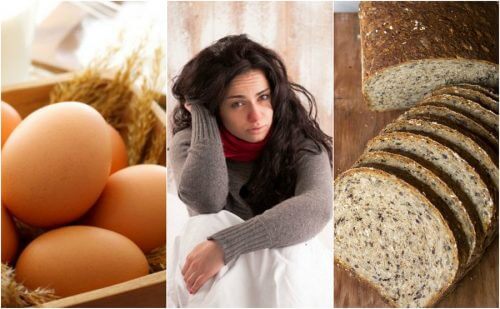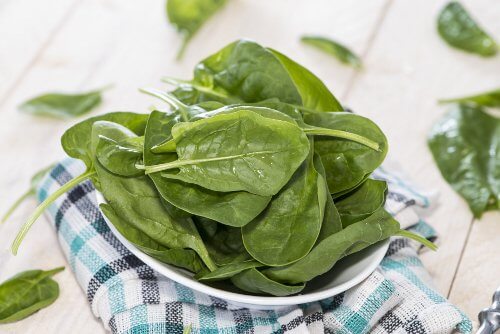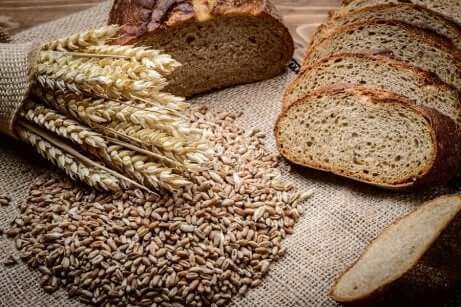Fight Anemia Naturally by Eating These 7 Foods


Reviewed and approved by the doctor José Gerardo Rosciano Paganelli
Fight anemia naturally by taking advantage of food’s nutritional contribution, within a balanced diet. However, you have to continue taking the treatment prescribed by the doctor.
Is it really possible to improve anemia with a healthy diet? Yes. We’ll explain it to you in greater detail, as well as other interesting information. Keep reading!
The role of food in anemia
Anemia is a condition produced by lowered hemoglobin in the blood. It’s almost always because of an iron deficiency or a deficiency in nutrients like folic acid or vitamin B12.
It’s one of the most common nutrition-related health problems out there, and while it is seen in all kinds of people, the most affected are children and women and those who follow a vegan diet.
Its presence causes difficulties in cells’ oxygenation processes. It can even interfere with the functioning of many vital organs.
As a result, the affected person is chronically fatigued, and, in serious cases, may develop conditions like hypertension, get infections, and even suffer memory loss.
The good news is that it’s a problem that you can control naturally, since it’s enough to improve your eating habits and nutrition.
For this reason, we decided to share seven foods whose properties contribute to improvement in anemia patients. Take note!
1. Spinach

Low in calories and high in essential nutrients, spinach deserves one of the first spots on our list of foods to help fight anemia. It contains A and B vitamins, both of which are necessary for strengthening your immune system and fighting fatigue.
The content of iron, zinc, and calcium in spinach encourages the production of hemoglobin and helps reestablish your circulation and, thus, improve oxygenation of the tissues. It also contains a lot of vitamin C, which helps improve iron absorption, as a study published in 2019 states.
- The ideal thing is to have at least 1/2 cup (75 gr) of spinach to get 20% of your iron requirements.
Read more: 5 Healthy Spinach Recipes to Enjoy Every Day
2. Oats
Besides being a source of iron, oats also contain vitamins and antioxidants that are key in treating this condition.
The high amount of nutrients in oats help oxygen and nutrients get transported throughout your body better, preventing physical and mental lows.
- Have two or three tablespoons (20 or 30 gr) of oats a day until your anemia has improved.
3. Eggs

Regular consumption of eggs is a habit to get into to help keep your body energized. They contain essential amino acids and minerals which work together to help produce hemoglobin and antibodies.
Their nutritional profile helps with chronic anemia while also controlling symptoms like fragile hair and nails. Its contribution of B vitamins helps prevent and reduce the symptoms of this disease, according to an article published in the journal American Family Physician.
- Add eggs into your regular diet, preferably with breakfast.
- Combine them with orange juice so that their nutrients will absorb more effectively.
4. Lentils
Lentils are one of the best legumes out there for anyone with anemia. Their iron content helps with red blood cell production and any circulation problems too.
They contain proteins and antioxidants that help protect cells from the breakdown caused by nutritional deficiencies.
- Have up to three servings of lentils a week and fight anemia naturally.
5. Whole grain bread

Whole grain foods are a great choice if you want to combat fatigue and weakness caused by anemia. The carbohydrates are a source of fuel for your tissues and cells, which helps keep your physical and mental performance up. In addition, the B vitamins it contains actively participate in energy metabolism.
Whole grains also contain a small amount of iron. Combined with other foods, it speeds up your recovery from this condition.
- Include whole grains in your breakfast, along with lean meat, avocado, or fruit, to help fight anemia.
Read more: 5 Ways to Increase Iron Levels in Your Blood
6. Liver, the best food for anemia
Treatment plans for people with anemia often include a diet with beef liver. This meat is a major source of easily-absorbed iron and, therefore, is one of the best nutritional answers to anemia.
- Have liver at least twice a week and fight anemia naturally.
7. Pomegranate
While pomegranates don’t contain high levels of iron, adding them to your diet can help with anemia symptoms.
They contain fiber, potassium, and other essential minerals that, along with counteracting deficiencies, improve your circulation and the process of cell oxygenation.
Having them in moderation increases your energy levels and helps keep your production of hemoglobin in balance.
- Have one piece of pomegranate a day, or enjoy it in juice form.
Improve your diet to prevent or treat anemia
Were you diagnosed with anemia? If som fight anemia by eating healthy, in addition to following your doctor’s recommendations. Of course, keep in mind that the portions should be moderate, since they’re a food supplement.
Keep in mind that following a restrictive diet, such as a vegan diet, increases the risk of anemia and other nutrient deficiency-related conditions.
All cited sources were thoroughly reviewed by our team to ensure their quality, reliability, currency, and validity. The bibliography of this article was considered reliable and of academic or scientific accuracy.
- Simonson W., Should vitamin C routinely be given with oral iron supplements? Geriatr Nurs, 2019.
- Langan RC., Goodbread AJ., Vitamin B12 deficiency: recognition and management. Am Fam Physician, 2017. 96 (6): 384-389.
This text is provided for informational purposes only and does not replace consultation with a professional. If in doubt, consult your specialist.








